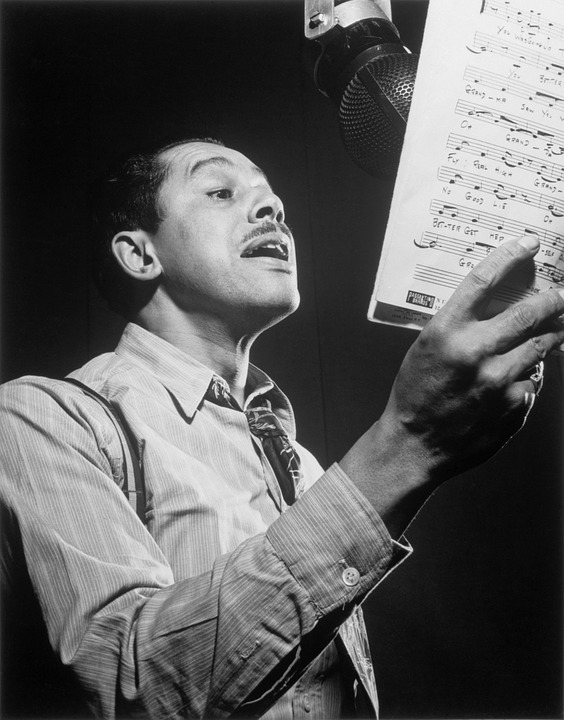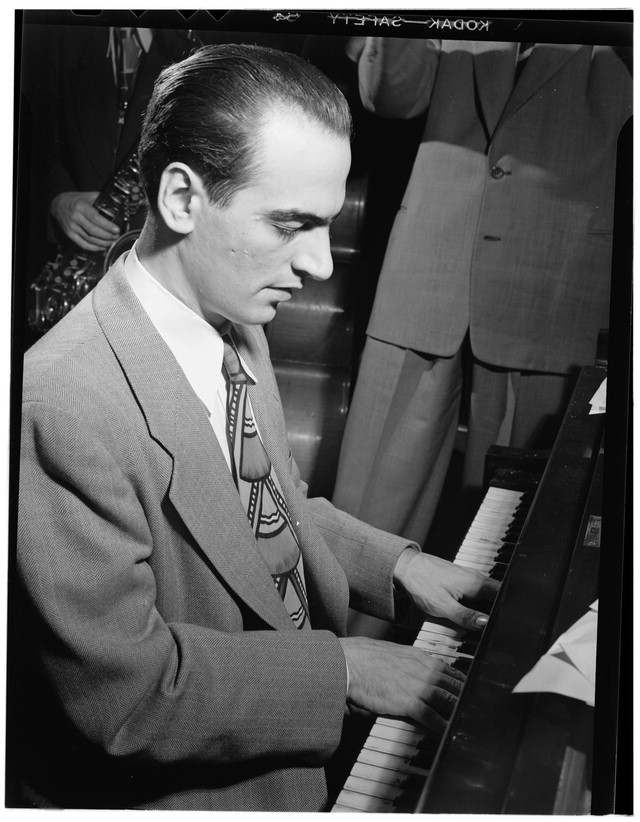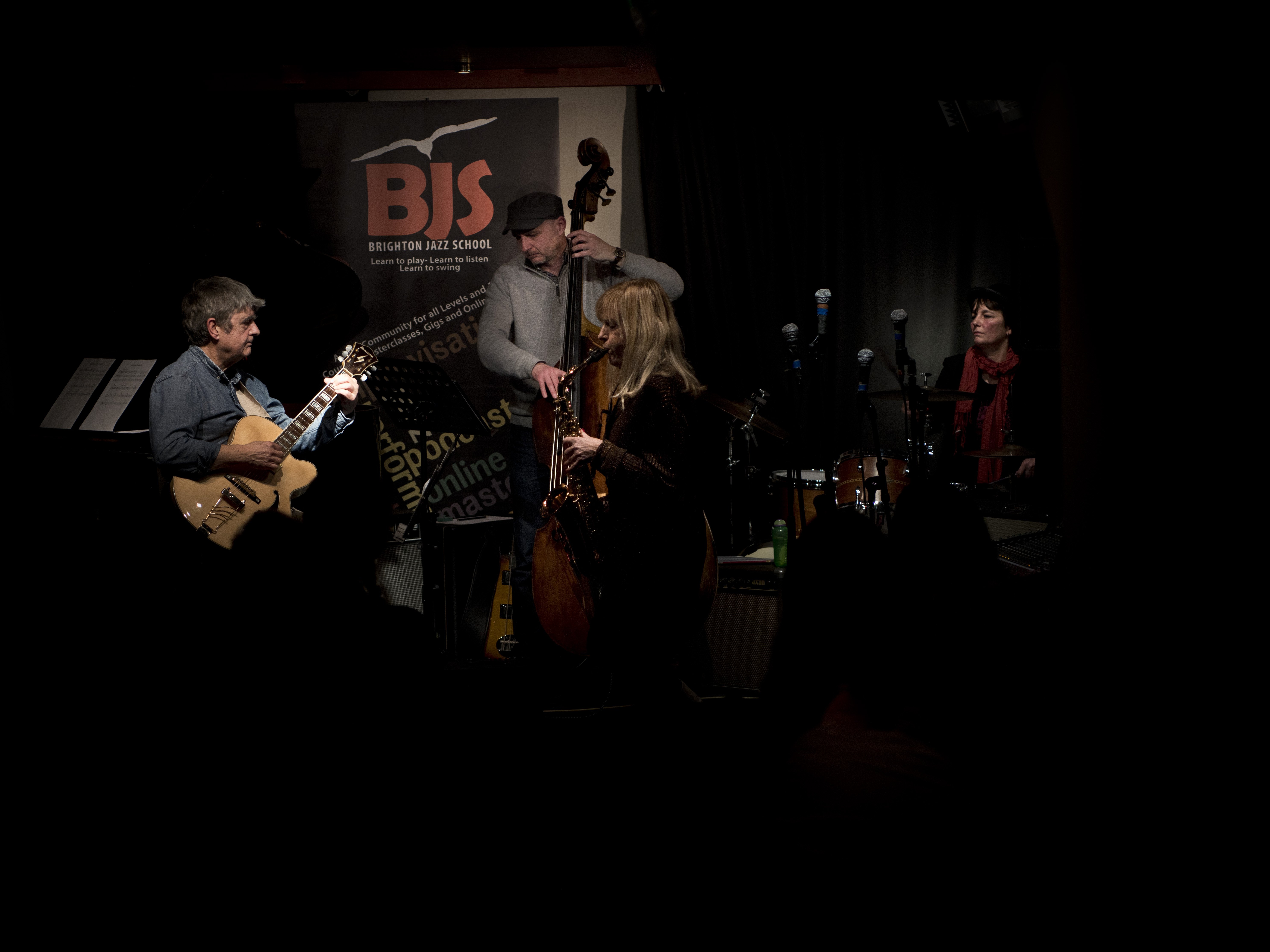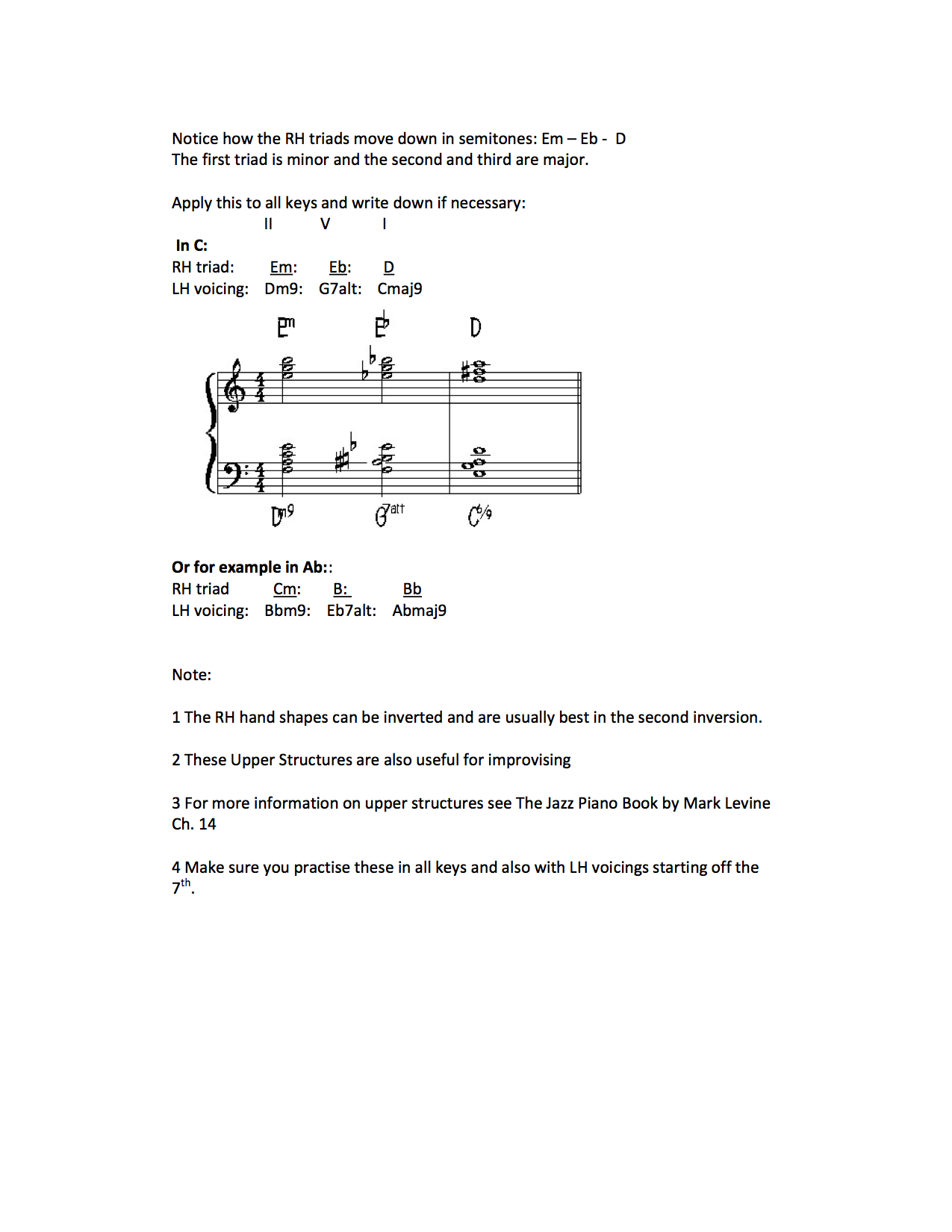Improv Column: Wayne McConnell – The Pseudo Jazz Singer

It would be very easy for me to write this piece and focus entirely on what "jazz singers" do wrong – which is why I’m going to do exactly that! Well, not entirely. I'll start by saying that working with good singers is my favourite format as a pianist. I truly love the art of comping for singers and it is something I have done a lot of. I love the diversity that it offers. Some singers are more like horn players while others are only interested in extracting the inherent beauty of the songs they sing. Either way is fine with me.
Singers in the jazz realm have an incredibly hard job. And for female singers, that job is even harder. First of all, "their" musicians will, with 99% certainty, be male. So even before the singer takes a breath to count in the tune, she or he will have to deal with all the issues that could potentially arise (namely egos). Of course, I’m talking very generally and tongue in cheek here, but it is no coincidence that singers very often get told how to do their job even if they are experienced. This is not so much to do with gender but rather a global, sweeping judgment that singers know nothing about harmony, melody or rhythm. There are many jazz musicians who think that singers are just there to look good and sing the song. The underlying thought tends to be: get the song out of the way so that the soloists can play the "real stuff". I’m sure there used to be a time where this didn’t happen and anyone calling themselves a jazz singer would get the respect they deserved, but that seems to have vanished for some time. Now when a jazz singer gets up on stage, you can see the musicians rolling their eyes. In fairness to the musicians, this is not because it’s a singer rather than another instrumentalist; it’s because they have got so used to accompanying singers who just don’t have their shit together.
History tells us that this was not always the case. So where and when did all this start? When Sarah Vaughn, Ella Fitzgerald, Billie Holiday, Betty Carter, Mark Murphy, Shirley Horn or Carmen McRae sing, they have such strength in what they do. I’m not talking necessarily about chops or dynamics, but rather a fire of confidence that everything comes from. Even in the frailty and sensitivity of Lady Day, she sings with complete authority. This authority is genuine, not arrogance or SCGS (self-confessed genius syndrome). All of these singers really knew their stuff. Their musicality and sense of involvement with both the material and the band are fully apparent in everything that they do. Just to be clear, I’m not talking about how much music theory they had or whether they could read and write music; I’m talking about their understanding of what it is to be a jazz singer. So perhaps that’s what’s missing from many singers today.
I’ve been very blessed to have worked with some fantastic singers and there are many great jazz singers out there carrying on the tradition. But there are even more "pseudo jazz singers" out there who are making it very hard for real jazz singers. That might sound harsh, but it is true. Just because you have a good voice, it does not make you a singer and it certainly doesn’t make you a jazz singer. I think it is actually really simple to define a jazz singer and I’m going to attempt to do it now:
A jazz singer is someone who has embraced and fallen in love with jazz (not just jazz singers) and who spends all their time trying to work out how to play jazz, just as a saxophonist or any instrumentalist would.
I really don’t think it has to be any deeper than that. There is a heavy price that goes with the title "jazz musician" and I don’t know a single jazz musician who hasn’t sacrificed a huge part of their life to use that title. It’s not a "phase or fad". You don’t suddenly wake up and think: "Hmm, today, I will ‘do’ jazz but only today." I’m urging potential jazz musicians, not just singers, to do your homework. Find out about the people behind the music. Make an effort to understand the complexities of the music. Learn the basics, like how to count in and what your keys are. Spend time developing and practising and you will be taken seriously even if you are at the beginning stages of your jazz journey. I’m afraid you won’t be taken seriously if you just sing a song with an American accent or sing a standard using all of the cliché runs that you hear every singer
do on The X Factor every Saturday night. Please do not insult your audience or the musicians by faking it because it is really damaging for the singers who are the real deal and who do respect the music.
Jazz musicians also have a responsibility to treat singers with respect and should try not to assume that they are "pseudo" until you hear them sing or see how they conduct themselves when they are setting up a tune. If they do everything right and still stumble, maybe they are at the beginnings of learning about jazz. I think it is much healthier to encourage people if you can see that they are making an effort to be a more authentic jazz singer rather than to just shun them and group them in with the pseudos. That way, they won't have to assume the "jazz singer stance" – a false display of confidence and control with a terrified look on their face. The more experienced jazz singer will be able to drop the "diva" attitude – some of them will, at least – and we can all relax into things and concentrate on making music as equals on the bandstand.
If a singer fails to know what is involved with jazz, it is fairly safe to assume they haven’t listened to jazz or they’ve heard Amy Winehouse being called an excellent jazz singer but think that that comment is based on her mainstream albums. A singer once came up to me on a jazz course I was teaching on and said: "I don’t need to know this stuff [chords] because I’m a singer." "OK…", I replied. I could have spent ages telling said singer how important it is to hear the harmony but I would have been wasting my time. I really think it is something you have to discover for yourself and some people will and others won’t. That doesn’t make them bad or unworthy, it just means they probably aren’t going to embrace jazz as fully as they might. Unless you are driven by an Inner Urge (injazzjoke) to learn this music, it is pointless either trying to help people understand faster or looking down upon them for not understanding what is involved. At some point they either will or won’t. I get frustrated at students who are only concerned with "modes" or "scales" because that is only a small part of the story, often those students have no sense of swing. No matter how many clever scales you know, if it doesn’t swing or if it’s not rhythmically interesting, there is no point. It is like using clever words because you’ve found them in a thesaurus.
I don’t hold auditions at the Jazz School but I now make sure ALL of the students have one thing: love for the music. With love comes understanding and with understanding comes love. If you love your partner and understand them, you are destined for a long, meaningful relationship. Understanding what your partner’s "currency" is, is fundamental to them feeling like you care about them. If you don’t understand that currency, your relationship will encounter problems but if you love that person, you will continue to search for that currency for as long as it takes. It’s the same dedication that is required with learning jazz. The "currency" for jazz music is its deep history. Not to say it is all about looking backwards, on the contrary, but the future of the music MUST represent what has gone before in some way. If not, the love and loyalty that these great musicians have given will be lost. Jazz musicians know this and that is why we have the greatest respect for these important figures in our music. Not everyone can give themselves in the same way but we can honor and respect them by maintaining it as best we can. The maintenance of that art will sustain it at a high level. From that drive, a few people will break out taking that high level to the next level. If there is any dumbing down, then it is all lost. To be clear, I'm not referring to complexity or sophistication when I say "high level" simply authenticity and truthfulness. So next time you hear a singer who hasn’t done their homework, don't look down on them or try and educate them, just accept that they are not there yet. It really is no big deal. Jazz audiences know the truth and can tell a pseudo jazz singer from the real deal. Eventually, the pseudo jazz singer will find out the truth but will only understand it under their own steam not by "jazz musicians" telling them so. Then it is their choice to follow the jazz path or not.
Wayne McConnell



